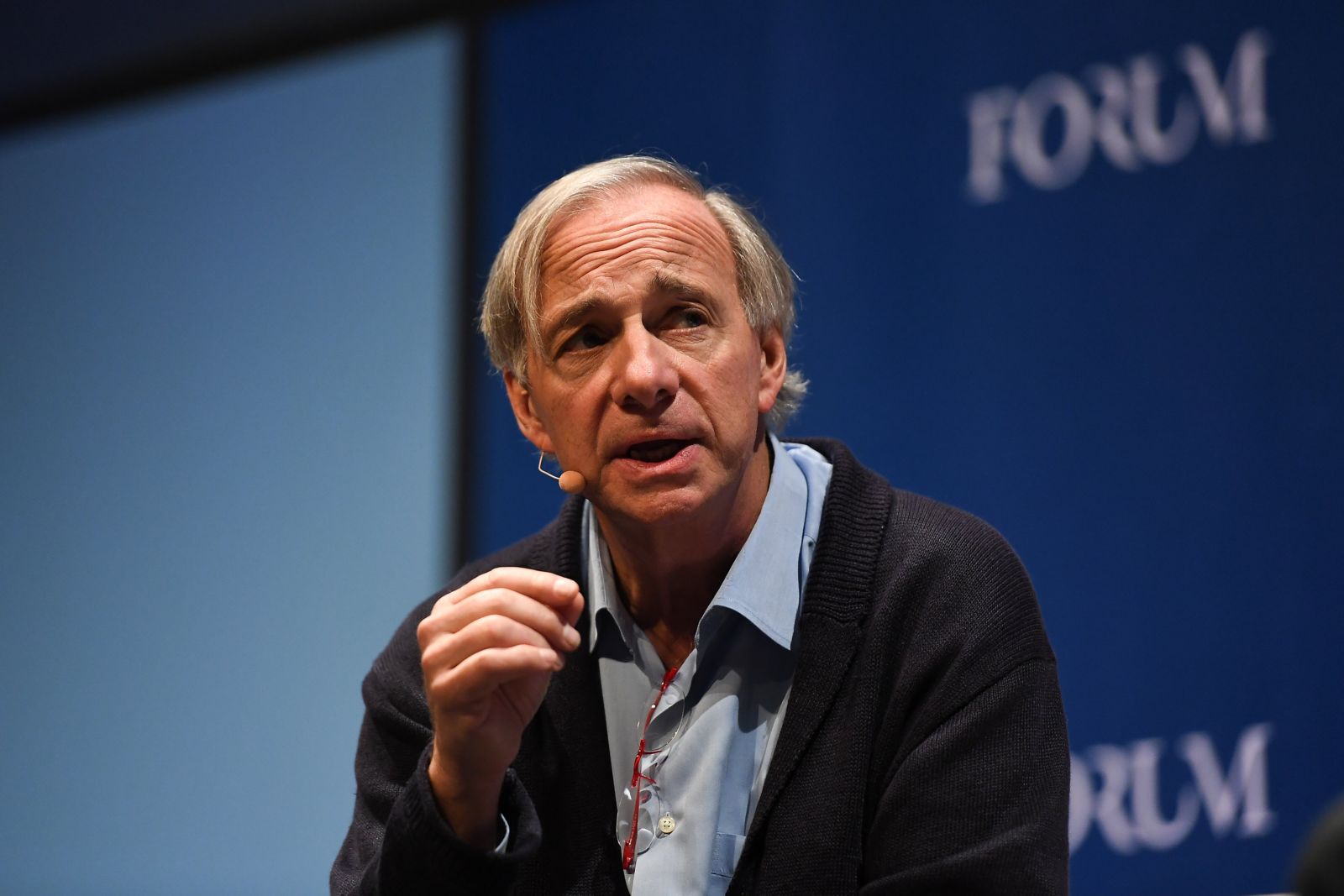Not All Hollywood Bets Have Fairytale Endings
The U.S. Securities and Exchange Commission announced that it charged BlackRock – the largest money manager in the world, with nearly $10 trillion in assets – for failing to properly disclose to its customers $75 million of investments it made…

Sign up to unveil the relationship between Wall Street and Washington.
This week, a curious press release came through the Power Corridor inbox.
The U.S. Securities and Exchange Commission announced that it charged BlackRock – the largest money manager in the world, with nearly $10 trillion in assets – for failing to properly disclose to its customers $75 million of investments it made in the entertainment industry.
(Full disclosure: I used to work for BlackRock, but have no direct knowledge of this story, other than my own research, below.)
The release, which was very light on the details, stated that, without admitting or denying anything, BlackRock consented to the SEC’s findings that it violated securities laws and agreed to a cease-and-desist order, a censure and a penalty of $2.5 million. A very small slap on the wrist for such a gargantuan company – and unusual enough in its diminutiveness to make one wonder, what’s the story?
Regulatory hidings for failing to make key disclosures to investors tend to be de rigueur, but they don’t often arise from watchdog agencies’ own detective work. Rather, they tend to follow on from reports from insiders and whistleblowers and, in this case, the tipoff seems to have come from BlackRock itself, which discovered the fraud – and its wild backstory. (The SEC declined to comment beyond its press release, as did BlackRock’s defense counsel, George Canellos, head of Milbank’s litigation and arbitration group.)
The story itself is fit for a Hollywood blockbuster. It seems a manager for the the BlackRock Multi-Sector Income Trust, a publicly traded fund with hundreds of millions of dollars under management, had a daughter who was an aspiring actress – and decided to make a series of aggressive investments, totaling around $75 million, or 10 percent of the fund’s assets at the time, in subsidiaries of a private Hollywood film production company called Aviron Group LLC.
The investments, which were made by BlackRock co-portfolio manager Randy Robertson, appear to have been a quid pro quo. Taking place between 2015 and 2019, they were made in the form of multimillion-dollar loans to Aviron shortly after Robertson introduced his daughter, Rebecca Lee Robertson, to the film company’s owner, William Sandleir, at Aviron’s offices in Los Angeles.
“Robertson asked Aviron to help advance his daughter’s acting career,” the SEC wrote, while “Aviron helped Robertson’s daughter obtain a small role in a film produced in 2018.”
That film, titled “After,” was released a year later. Robertson’s daughter didn’t star in it, but she did receive a speaking role.
Sandleir said BlackRock initially provided a $12 million loan to the film company in 2015 and, in exchange, Aviron began arranging for Robertson’s daughter “to meet with casting agents and managers.” Robertson’s daughter also received preferential treatment from the film company. “Any time there was an opportunity to put her in a movie, we considered her,” Sandleir said.
Robertson also provided $10 million in financing, via the BlackRock fund, for the film “After,” when he learned his daughter’s part in it. Speaking of that investment in an interview with The Wall Street Journal, Sandleir said, “I can’t tell you that he made the decision purely because his daughter was in the movie, but I can tell you, BlackRock approved that financing after turning down the opportunity to finance several earlier movies.”
Throughout the course of the transactions, Robertson failed to reveal his conflict of interest to the BlackRock fund’s board of trustees, or its compliance or legal teams, according to the SEC’s release this week.
Here’s what happened next: “After” flopped and Aviron defaulted on its $75 million in loans, eventually going under in 2022. Meanwhile the BlackRock fund took a bath, losing 10 percent of its value – from which it still hasn’t fully recovered. The fund’s assets under management are now just over $500 million, down from $750 million in 2017.
Robertson was found out and, after an extensive internal investigation by BlackRock, lost his job in 2020. (The SEC and BlackRock’s defense counsel declined to comment on exactly how that all went down). SEC charged Robertson for failing to disclose his conflict of interest while investing millions of dollars from the BlackRock fund. Robertson agreed to pay $250,000 to settle the charges earlier this year.
Andrew Dean, co-chief of the asset management unit of the SEC’s Enforcement Division, in a statement, said, “Investment professionals must be forthcoming about any conflicts of interest they may have with the companies in which they invest client funds, including situations involving favors or assistance to family members.” He added, “Investors must be able to know that the advice they receive is free of undisclosed conflicts, regardless of whether the conflict is financial in nature.”
Case closed, right? Actually, no. Apparently, Robertson and his daughter weren’t the only ones with Hollywood aspirations. It turns out Sandleir, the owner of Aviron, had them as well. After meeting Robertson, he also sought to exploit the BlackRock fund, undertaking a spectacular fraud.
When BlackRock discovered the loans it made to Aviron were worthless and had to disclose to clients the investments had no value, it filed a lawsuit against Aviron – and Sandleir.
The SEC and federal prosecutors also charged Sandleir with leading schemes involving BlackRock’s $75 million of investments, including taking $25 million of the BlackRock funds by misleading the firm about what he was doing with them, and forging a BlackRock manager’s signature to documents to sell an additional $3 million of assets.
Rather than using the money for his company, Sandleir went on a shopping spree, purchasing, among other things, a $14 million mansion in Beverly Hills.
Sandleir last year pleaded guilty to two counts of wire fraud in connection with the theft of BlackRock funds. He was sentenced to six years in prison and ordered to pay $31.6 million in restitution.
Notably, before getting into the movie business, Sandleir was a former special assistant to late U.S. president Ronald Reagan and a deputy secretary of state. Aside from pleading guilty in the BlackRock case, he also pleaded guilty to money laundering and fraud charges for applying for and receiving $1.7 million of pandemic loans for Aviron – despite the fact he had been fired by the film company, which shut down due to the discovery of his BlackRock embezzlement.
A judge sentenced Sandleir late last year to 41 months in federal prison for that, plus $282,566 in restitution.
This week’s light spanking of BlackRock by the SEC brings this very strange Hollywood saga to a close. Still, apart from highlighting how expensive – and risky – filmmaking ventures can be, one has to wonder about the SEC’s handling of BlackRock, which was also a victim of the fraud, in addition to its clients.
How do financial firms root out, report and pursue wrongdoing – in this case, inside the company itself by one of its own managers – without running the risk of also being punished for it, when it is disclosed?
The views expressed in this op-ed are solely those of the author and do not necessarily reflect the opinions or policies of The Daily Upside, its editors, or any affiliated entities. Any information provided herein is for informational purposes only and should not be construed as professional advice. Readers are encouraged to seek independent advice or conduct their own research to form their own opinions.











